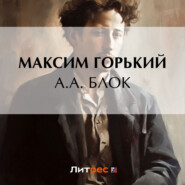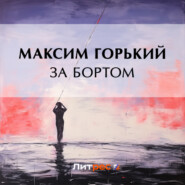По всем вопросам обращайтесь на: info@litportal.ru
(©) 2003-2025.
✖
Mother
Настройки чтения
Размер шрифта
Высота строк
Поля
"Never mind!" he exclaimed, his voice tremulous, but clear and bold. "I'm not alone in the world. They'll not capture all the truth. In the place where I was the memory of me will remain. That's it! Even though they destroy the nest, aren't there more friends and comrades there?"
"He's saying this for me," the mother decided quickly.
"The people will build other nests for the truth; and a day will come when the eagles will fly from them into freedom. The people will emancipate themselves."
A woman brought a pail of water and, wailing and groaning, began to wash Rybin's face. Her thin, piteous voice mixed with Mikhaïl's words and hindered the mother from understanding them. A throng of peasants came up with the police commissioner in front of them. Some one shouted aloud:
"Come; I'm going to make an arrest! Who's next?"
Then the voice of the police commissioner was heard. It had changed – mortification now evident in its altered tone.
"I may strike you, but you mayn't strike me. Don't you dare, you dunce!"
"Is that so? And who are you, pray? A god?"
A confused but subdued clamor drowned Rybin's voice.
"Don't argue, uncle. You're up against the authorities."
"Don't be angry, your Honor. The man's out of his wits."
"Keep still, you funny fellow!"
"Here, they'll soon take you to the city!"
"There's more law there!"
The shouts of the crowd sounded pacificatory, entreating; they blended into a thick, indistinct babel, in which there was something hopeless and pitiful. The policemen led Rybin up the steps of the town hall and disappeared with him behind the doors. People began to depart in a hurry. The mother saw the blue-eyed peasant go across the square and look at her sidewise. Her legs trembled under her knees. A dismal feeling of impotence and loneliness gnawed at her heart sickeningly.
"I mustn't go away," she thought. "I mustn't!" and holding on to the rails firmly, she waited.
The police commissioner walked up the steps of the town hall and said in a rebuking voice, which had assumed its former blankness and soullessness:
"You're fools, you damned scoundrels! You don't understand a thing, and poke your noses into an affair like this – a government affair. Cattle! You ought to thank me, fall on your knees before me for my goodness! If I were to say so, you would all be put to hard labor."
About a score of peasants stood with bared heads and listened in silence. It began to grow dusk; the clouds lowered. The blue-eyed peasant walked up to the steps, and said with a sigh:
"That's the kind of business we have here!"
"Ye-es," the mother rejoined quietly.
He looked at her with an open gaze.
"What's your occupation?" he asked after a pause.
"I buy lace from the women, and linen, too."
The peasant slowly stroked his beard. Then looking up at the town hall he said gloomily and softly:
"You won't find anything of that kind here."
The mother looked down on him, and waited for a more suitable moment to depart for the tavern. The peasant's face was thoughtful and handsome and his eyes were sad. Broad-shouldered and tall, he was dressed in a patched-up coat, in a clean chintz shirt, and reddish homespun trousers. His feet were stockingless.
The mother for some reason drew a sigh of relief, and suddenly obeying an impulse from within, yielding to an instinct that got the better of her reason, she surprised herself by asking him:
"Can I stay in your house overnight?"
At the question everything in her muscles, her bones, tightened stiffly. She straightened herself, holding her breath, and fixed her eyes on the peasant. Pricking thoughts quickly flashed through her mind: "I'll ruin everybody – Nikolay Ivanovich, Sonyushka – I'll not see Pasha for a long time – they'll kill him – "
Looking on the ground, the peasant answered deliberately, folding his coat over his breast:
"Stay overnight? Yes, you can. Why not? Only my home is very poor!"
"Never mind; I'm not used to luxury," the mother answered uncalculatingly.
"You can stay with me overnight," the peasant repeated, measuring her with a searching glance.
It had already grown dark, and in the twilight his eyes shone cold, his face seemed very pale. The mother looked around, and as if dropping under distress, she said in an undertone:
"Then I'll go at once, and you'll take my valise."
"All right!" He shrugged his shoulders, again folded his coat and said softly:
"There goes the wagon!"
In a few moments, after the crowd had begun to disperse, Rybin appeared again on the steps of the town hall. His hands were bound; his head and face were wrapped up in a gray cloth, and he was pushed into a waiting wagon.
"Farewell, good people!" his voice rang out in the cold evening twilight. "Search for the truth. Guard it! Believe the man who will bring you the clean word; cherish him. Don't spare yourselves in the cause of truth!"
"Silence, you dog!" shouted the voice of the police commissioner. "Policeman, start the horses up, you fool!"
"What have you to be sorry for? What sort of life have you?"
The wagon started. Sitting in it with a policeman on either side, Rybin shouted dully:
"For the sake of what are you perishing – in hunger? Strive for freedom – it'll give you bread and – truth. Farewell, good people!"
The hasty rumble of the wheels, the tramp of the horses, the shout of the police officer, enveloped his speech and muffled it.
"It's done!" said the peasant, shaking his head. "You wait at the station a little while, and I'll come soon."
CHAPTER XI
The mother went to the room in the tavern, sat herself at the table in front of the samovar, took a piece of bread in her hand, looked at it, and slowly put it back on the plate. She was not hungry; the feeling in her breast rose again and flushed her with nausea. She grew faint and dizzy; the blood was sucked from her heart. Before her stood the face of the blue-eyed peasant. It was a face that expressed nothing and failed to arouse confidence. For some reason the mother did not want to tell herself in so many words that he would betray her. The suspicion lay deep in her breast – a dead weight, dull and motionless.
"He scented me!" she thought idly and faintly. "He noticed – he guessed." Further than this her thoughts would not go, and she sank into an oppressive despondency. The nausea, the spiritless stillness beyond the window that replaced the noise, disclosed something huge, but subdued, something frightening, which sharpened her feeling of solitude, her consciousness of powerlessness, and filled her heart with ashen gloom.
The young girl came in and stopped at the door.
"He's saying this for me," the mother decided quickly.
"The people will build other nests for the truth; and a day will come when the eagles will fly from them into freedom. The people will emancipate themselves."
A woman brought a pail of water and, wailing and groaning, began to wash Rybin's face. Her thin, piteous voice mixed with Mikhaïl's words and hindered the mother from understanding them. A throng of peasants came up with the police commissioner in front of them. Some one shouted aloud:
"Come; I'm going to make an arrest! Who's next?"
Then the voice of the police commissioner was heard. It had changed – mortification now evident in its altered tone.
"I may strike you, but you mayn't strike me. Don't you dare, you dunce!"
"Is that so? And who are you, pray? A god?"
A confused but subdued clamor drowned Rybin's voice.
"Don't argue, uncle. You're up against the authorities."
"Don't be angry, your Honor. The man's out of his wits."
"Keep still, you funny fellow!"
"Here, they'll soon take you to the city!"
"There's more law there!"
The shouts of the crowd sounded pacificatory, entreating; they blended into a thick, indistinct babel, in which there was something hopeless and pitiful. The policemen led Rybin up the steps of the town hall and disappeared with him behind the doors. People began to depart in a hurry. The mother saw the blue-eyed peasant go across the square and look at her sidewise. Her legs trembled under her knees. A dismal feeling of impotence and loneliness gnawed at her heart sickeningly.
"I mustn't go away," she thought. "I mustn't!" and holding on to the rails firmly, she waited.
The police commissioner walked up the steps of the town hall and said in a rebuking voice, which had assumed its former blankness and soullessness:
"You're fools, you damned scoundrels! You don't understand a thing, and poke your noses into an affair like this – a government affair. Cattle! You ought to thank me, fall on your knees before me for my goodness! If I were to say so, you would all be put to hard labor."
About a score of peasants stood with bared heads and listened in silence. It began to grow dusk; the clouds lowered. The blue-eyed peasant walked up to the steps, and said with a sigh:
"That's the kind of business we have here!"
"Ye-es," the mother rejoined quietly.
He looked at her with an open gaze.
"What's your occupation?" he asked after a pause.
"I buy lace from the women, and linen, too."
The peasant slowly stroked his beard. Then looking up at the town hall he said gloomily and softly:
"You won't find anything of that kind here."
The mother looked down on him, and waited for a more suitable moment to depart for the tavern. The peasant's face was thoughtful and handsome and his eyes were sad. Broad-shouldered and tall, he was dressed in a patched-up coat, in a clean chintz shirt, and reddish homespun trousers. His feet were stockingless.
The mother for some reason drew a sigh of relief, and suddenly obeying an impulse from within, yielding to an instinct that got the better of her reason, she surprised herself by asking him:
"Can I stay in your house overnight?"
At the question everything in her muscles, her bones, tightened stiffly. She straightened herself, holding her breath, and fixed her eyes on the peasant. Pricking thoughts quickly flashed through her mind: "I'll ruin everybody – Nikolay Ivanovich, Sonyushka – I'll not see Pasha for a long time – they'll kill him – "
Looking on the ground, the peasant answered deliberately, folding his coat over his breast:
"Stay overnight? Yes, you can. Why not? Only my home is very poor!"
"Never mind; I'm not used to luxury," the mother answered uncalculatingly.
"You can stay with me overnight," the peasant repeated, measuring her with a searching glance.
It had already grown dark, and in the twilight his eyes shone cold, his face seemed very pale. The mother looked around, and as if dropping under distress, she said in an undertone:
"Then I'll go at once, and you'll take my valise."
"All right!" He shrugged his shoulders, again folded his coat and said softly:
"There goes the wagon!"
In a few moments, after the crowd had begun to disperse, Rybin appeared again on the steps of the town hall. His hands were bound; his head and face were wrapped up in a gray cloth, and he was pushed into a waiting wagon.
"Farewell, good people!" his voice rang out in the cold evening twilight. "Search for the truth. Guard it! Believe the man who will bring you the clean word; cherish him. Don't spare yourselves in the cause of truth!"
"Silence, you dog!" shouted the voice of the police commissioner. "Policeman, start the horses up, you fool!"
"What have you to be sorry for? What sort of life have you?"
The wagon started. Sitting in it with a policeman on either side, Rybin shouted dully:
"For the sake of what are you perishing – in hunger? Strive for freedom – it'll give you bread and – truth. Farewell, good people!"
The hasty rumble of the wheels, the tramp of the horses, the shout of the police officer, enveloped his speech and muffled it.
"It's done!" said the peasant, shaking his head. "You wait at the station a little while, and I'll come soon."
CHAPTER XI
The mother went to the room in the tavern, sat herself at the table in front of the samovar, took a piece of bread in her hand, looked at it, and slowly put it back on the plate. She was not hungry; the feeling in her breast rose again and flushed her with nausea. She grew faint and dizzy; the blood was sucked from her heart. Before her stood the face of the blue-eyed peasant. It was a face that expressed nothing and failed to arouse confidence. For some reason the mother did not want to tell herself in so many words that he would betray her. The suspicion lay deep in her breast – a dead weight, dull and motionless.
"He scented me!" she thought idly and faintly. "He noticed – he guessed." Further than this her thoughts would not go, and she sank into an oppressive despondency. The nausea, the spiritless stillness beyond the window that replaced the noise, disclosed something huge, but subdued, something frightening, which sharpened her feeling of solitude, her consciousness of powerlessness, and filled her heart with ashen gloom.
The young girl came in and stopped at the door.

















